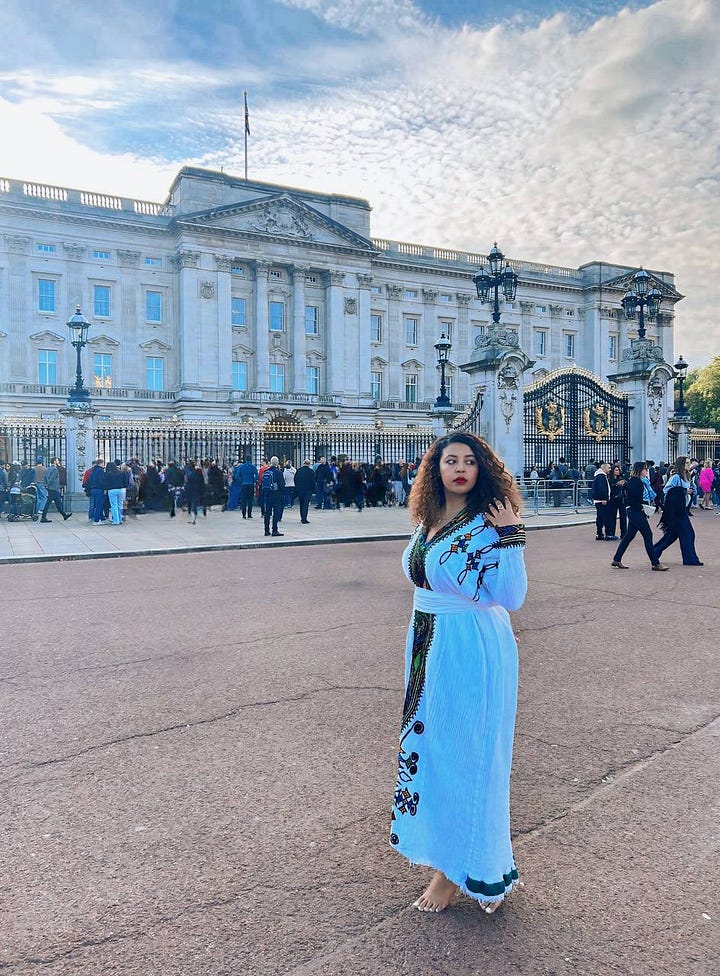3 Questions is a new segment on Urban Chronicles where you get to meet the people in no more than three questions. Some of them will be creatives with several projects under their belt, some will be aspiring visionaries who hope to change the world and some will be people we encounter in our daily lives.
1. What is it like translating your personal journey into writing? Do you ever feel overwhelmed?
Writing about my personal journey feels like… holding up a mirror to myself, sometimes it’s clear, sometimes foggy, and other times, I wish I could hug the girl in the mirror. I think in writing more than I do in speech, so it helps me process life. It allows me to meet the versions of myself that I don’t always notice in real time.
But most importantly, I write because my brain doesn’t know how to stop thinking. There is this endless loop of ideas and feelings, and writing is my way of making it stop. Once it’s written down, it’s out of my system. I don’t go back and obsess over it anymore. It’s me telling myself, “Okay, Pomy, you’ve dealt with this. Let’s move on.”
Of course, it can also be overwhelming. Writing forces me to face the thoughts I would rather ignore because it doesn’t let me escape my own thoughts. Some stories want me to write them before I’m ready to tell them, and there are moments when I struggle to find the balance between honesty and emotional exhaustion. But I try to write anyway, because it’s the only way I make sense of what is in my head.
2. You have transitioned through several career fields. How has that helped your personal development?
Looking back, it’s ironic how I started with a psychology degree, even though my soul always knew I wanted to work in the creative arts. But somehow, I was convinced I didn’t need to go to school for it because “it’s just a hobby.” Yet here I am, in a foreign country, studying that hobby.
Of course, passion had other plans, and I ended up in scriptwriting. Best decision ever. Every transition in my career has been a lesson in becoming. Scriptwriting taught me how to tell stories that can reach people, but it also let me hide behind the screen, safely tucked away from the world. Then communication yanked me out and threw me into rooms where I had to speak the words I used to hide behind. I had to pitch ideas, present strategies, and lead discussions. And I was scared. The kind of scared that you could hear in my shaky voice. The kind of scared that almost made me shrink back. But I didn’t. I learned.
Working in development communication changed me even more. I had to learn storytelling is also about listening, understanding how narratives can impact real lives. I learned that words alone don’t change the world, connection does. I can write a story beautifully, but if it doesn’t reach people in a way that moves them, challenges them, or makes them feel seen, it remains just words. And now, studying media has made me even more aware of how stories move, how they spread, who amplifies them, and who gets to control the narrative. It has made me question why some voices are heard while others are silenced, how media can be both a tool for liberation and a weapon for manipulation.
Through all of this, I would say I have become more adaptable, more confident, and more intentional with my voice. And if there’s one thing I have taken from this process, it’s that every version of me was necessary to get here. Especially the one that used to be scared.
3. You recently moved to Britain. How is living in Britain different from living in Addis? How has that journey transformed you and made you see your life in Addis?
Time moves differently in London. Days blur into each other, and I barely notice where one ends and the next begins. It’s structured, yet somehow disorienting. At first, I couldn’t understand why, but now I think it’s because here, time is mostly spent on busyness, on tasks, on individual routines, on things that must get done. In Addis, life is built around people, the community keeps you in the present, so you feel every minute. There is a sense of presence, of time stretching in shared conversations, unplanned moments, and life happening with others, not just around them. Here, life is structured, efficient, and isolating in a way Addis never was.


But at the same time, London has given me something Addis never did, space to think. In Addis, the chaos, the warmth, the communal life kept me constantly engaged, always doing. Here, I have had more time to reflect, to listen to my own thoughts, and to sit with myself in a way I never had to before. I would say that made me braver, more willing to take risks, and more aware of how flawed the world is, how many broken systems exist, and how much I still have to learn. It has also made me write more, but this time about real life rather than fiction.
The move has made me see Addis differently. I used to take its sense of connection for granted, assuming that the rhythm of life was just the way things are. But now, I see it as something intentional. The slowness, the unplanned moments, the closeness, they are not inefficiencies, they are life itself. Of course, I can also see gaps I hadn’t noticed before, the way Addis, too, is led by broken systems, by its own form of busyness that can sometimes disguise itself as culture. Moving away hasn’t made me love it any less, but it has made me see it more clearly.
You can find some of Pomy’s writings on her newsletter/blog Yours Sincerely








